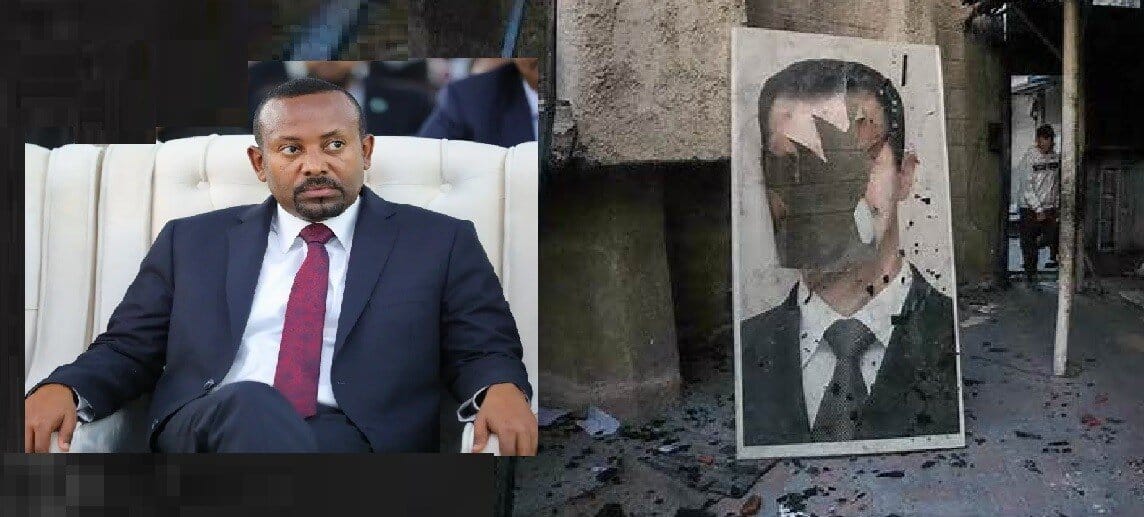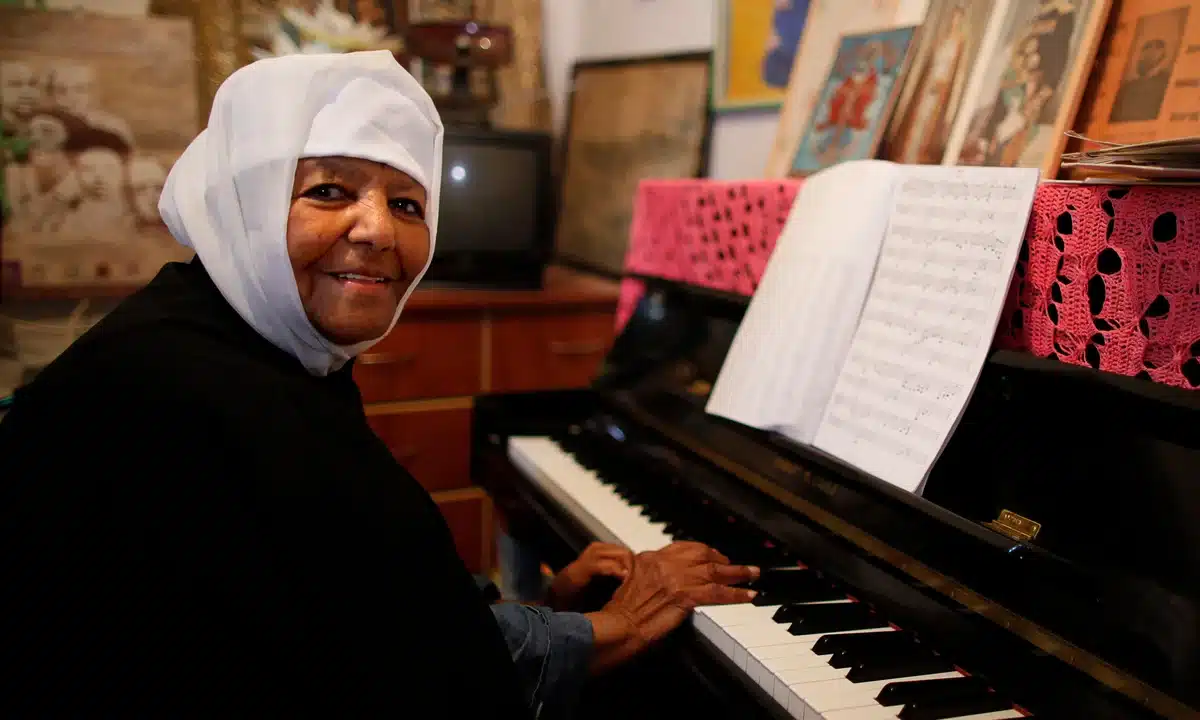Metaphorically speaking, present-day Ethiopia is not unlike a leaking ship struggling to remain adrift and navigate through a vast, turbulent ocean. Stretching the metaphor further, the ship’s captain is a deluded sociopath, with a drunken undisciplined crew to boot. Add to the mix thousands and thousands of rowdy, greedy passengers, oblivious to the catastrophe awaiting them, scrambling for front seats to enjoy the oceanic “view ahead”. It is sheer madness. Yet, this description might not be as far-fetched as it seems.
To gain a holistic view, consider the following pretty basic data pertaining to Ethiopia’s status in terms of nutrition/food security, governance, inflation, and healthcare – to get a helicopter view of the situation.
With a population of 123.4 million people, Ethiopia is the second-largest nation on the continent projected to grow to 210 million by 2050. Over 70% of the population is below 31 years. (Population Reference Bureau 2020). Indeed, we are a fast-reproducing young country. The economy is not gearing up to accommodate such a steep rise. No wonder as of 2022, 29 million people have been in need of humanitarian assistance). On average, the country had to cope with 3 million people at a crisis level of food insecurity every single year. (Relief Web 2022). In 2023 7.4 million people needed nutrition assistance (OCHA 2023). This shortage has been met by BEGGING for food from foreigners we like to disparage. Tribal wars, droughts, disease outbreaks, and desert locusts combine to create an almost permanent influx of Internally Displaced Persons (IDPs) that numbered 3.3 million in 2018 and 4.2 million in 2021. Again, the plight of these miserable is addressed by BEGGING.
We are leading the world in a number of negative indicators. According to the UNDP’s 2023 Multidimensional Poverty Index (MPI) which measures a person’s overlapping deprivations – such as food, health, education, sanitation, etc. across ten indicators – 68.7% of the country’s population or 82.7 million Ethiopians belonged in that category. Ethiopia stands 175th among 191 countries of the World according to the Human Development Index Report (UNDP 2023). According to Transparency International, Ethiopia scores only 38% in terms of how clean the government is perceived i.e. whether it delivers services corruption-free. According to the Fund for Pace (2023) which measures the fragility of states, Ethiopia is the 11th most fragile state in the world, faring only better than a few countries such as Somalia, Afghanistan, South Sudan, DR Congo, Chad, and Central African Republic. We can go on, but this suffices to highlight where Ethiopia is now, and where it is heading.
In summary, present-day Ethiopia is anything but a land where the apocalypse seems to unfold: war, famine, misery, and death.
Given the above worrisome facts, one would expect a dedicated government led by clean, technically competent public servants that sees the impeding risk, mobilizing all its citizens and gearing up to meet the challenges head-on. One would also expect a sane, rational intellectual class, creative business elite, ethical religious leaders and opinion-makers, and cultural figures – all to come together to support the government, to address the emergency. Sad to say, present-day Ethiopia is devoid of all of these human agencies needed for our collective survival. No, what one sees instead is a government busy stealing and corrupting the country; busy setting one divisive agenda after another and scheming endlessly to survive from one day to the next. What one instead finds is an “intellectual” elite operating on what Daniel Kahneman terms “System 1” – thoughtless, impulse reaction, devoid of any prefrontal cortex-mediated higher-order thought process. The Ethiopian intellectual, both at home and in the diaspora, is busy peddling a worn-out early 19th-century primordial “ethnic nationalist” agenda.
Ethnic nationalism, a phenomenon born out of the falling apart of the Ottoman and Hapsburg empires, has given us two World Wars, some 70 million deaths, untold human suffering, and destruction – only to realize belatedly its folly and trying to get out of the morass it bequeathed through promoting pan-European unity (European Union). The Ethiopian “intellectual” is on a path to recreate the European quagmire in Ethiopia. What a shame! Europe had already made the mistake for us – to learn from. But dumb people always learn the wrong lessons from disasters and repeat them endlessly. European ethnic national wars, the latest ones that led to a bloodbath in the Balkans and to the fragmentation of Yugoslavia, the wars in Georgia, etc., are the latest examples, if one could learn from them. The “ethnic” state has never been a panacea. The “ethnic” state that capitalizes on one identity could likely fracture into the “religious” state because those who promote this agenda know only one thing: escalating differences and conflicts. They are devoid of any semblance of competence in putting forth positive agenda, building bridges, and creating a common future.
Envision a helicopter pilot hovering above our metaphorical leaking ship symbolizing Ethiopia, trying to figure out how to best rescue the ship. Try to imagine his shock observing below the ship captain leisurely going around shaking the hands of his “adoring” passengers … smoking his cigar; the passengers scrambling for front seats, some are enjoying the swimming pool, … not unlike the last scene from the film “Titanic”. The helicopter pilot hovering above the ship does not see a Tigre, Oromo, Amhara, Somali, etc., but a large herd of mindless humanity blindly awaiting to sink together, to their collective demise.
We all, present-day Ethiopians, ethnic or religious identity notwithstanding, have now collectively displayed to the world the toxic mix of stupidity and insincerity we are made of. We are now becoming the laughingstock and embarrassment of Africa. We have no shame. Is it Amical Cabral, the revolutionary from Guinea Bissau, who said something to the effect that shame is a revolutionary attribute in the sense that one who feels shame has the potential to redeem himself or herself?
Present-day Ethiopians have no shame. We “start” revolutions, fail to bear the heat of battle, run away, and become diaspora; we “initiate” social or economic or political reform and fail to have the necessary grit, abandon it altogether and become diaspora. Safe in the diaspora we preach intolerance, dish out our own exclusive “panacea’ to the problems we left behind back home and insist on their implementation. Safe in diaspora, notwithstanding the fact that ethnicity is pure and simple a social construct, most of us of multiple heritage, negating the very mixed blood running in our own very veins, we choose a father’s ethnicity and rally against our “mother’s” or vice versa and specialize in preaching intolerance and hatred. Nobody amongst us, none, can go with his head upright. We ought to stoop burdened by our guilt, stupidity, and vanity.
Meanwhile, we cultivate a cult-like following among the desperate youth clamoring for moral and intellectual leadership. If only they realize what we are delivering is a “pie in the sky”! We are allowing the least capable, the least ethical amongst us to set the terms of the discourse and the political agenda, and the future of the country.
In this contemplative state, as if onboard a sinking ship, all talk of ethnicity or identity becomes meaningless. Thus, feeling like I am a passenger in a sinking ship, I find all talk about ethnicity, or this or that identity meaningless. To whom am I addressing this? Nobody. This is a monologue I am sharing. //
Girma Berhanu (Professor)


















Thank you
I get your anguished, fiercely critical “monologue” regarding the sorry state of the Ethiopian nation. Much of your critique is spot-on.
But, is there any future for our beloved homeland? I ask because you liken it to a sinking ship, offering an overly pessimistic, apocalyptic vision of the state of the nation. Do you have any hope at all for the country?
It is something like an essay with with brilliant words. But its all biased. On the contrary I feel hope, not despair concerning the lidership of the country at this time.